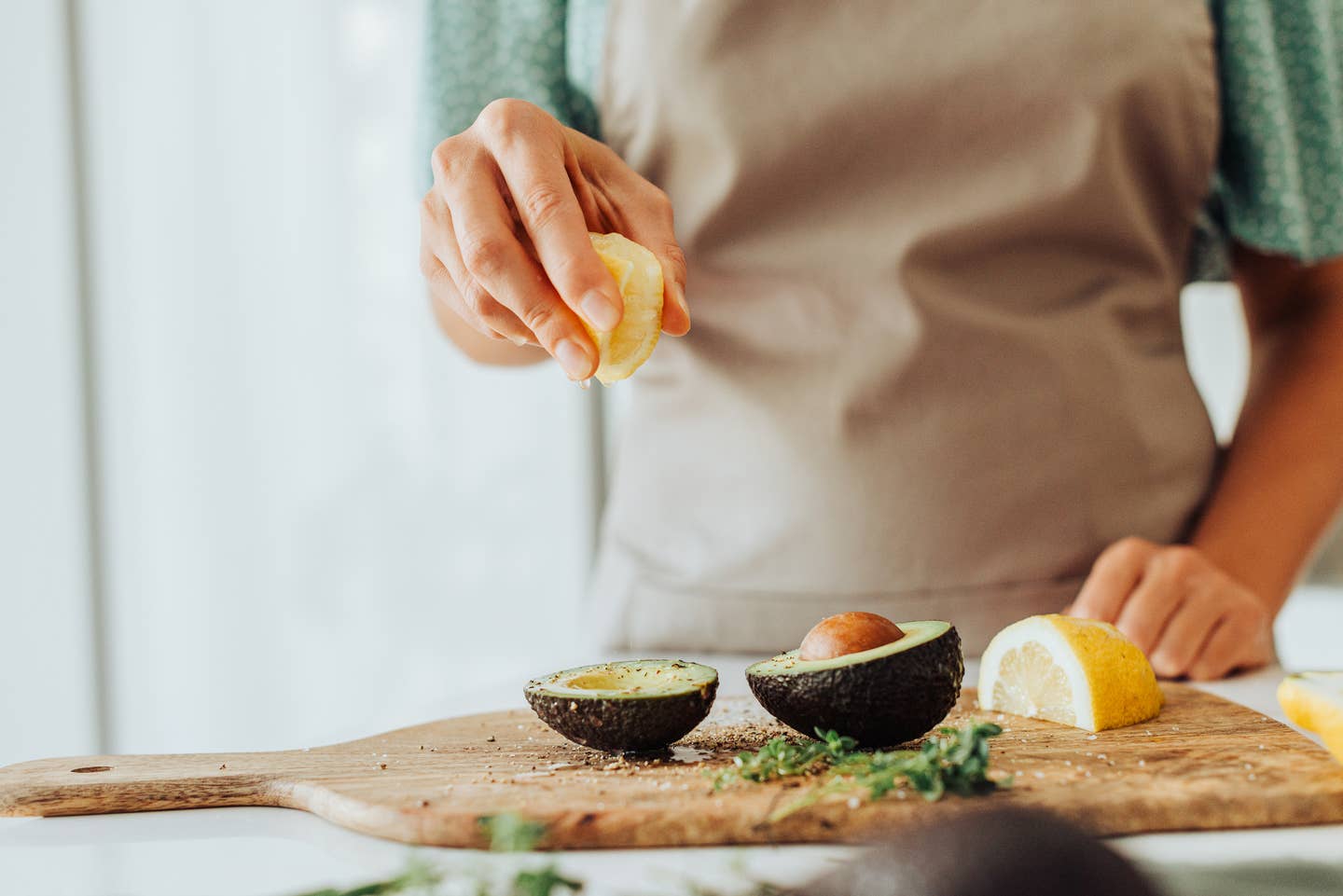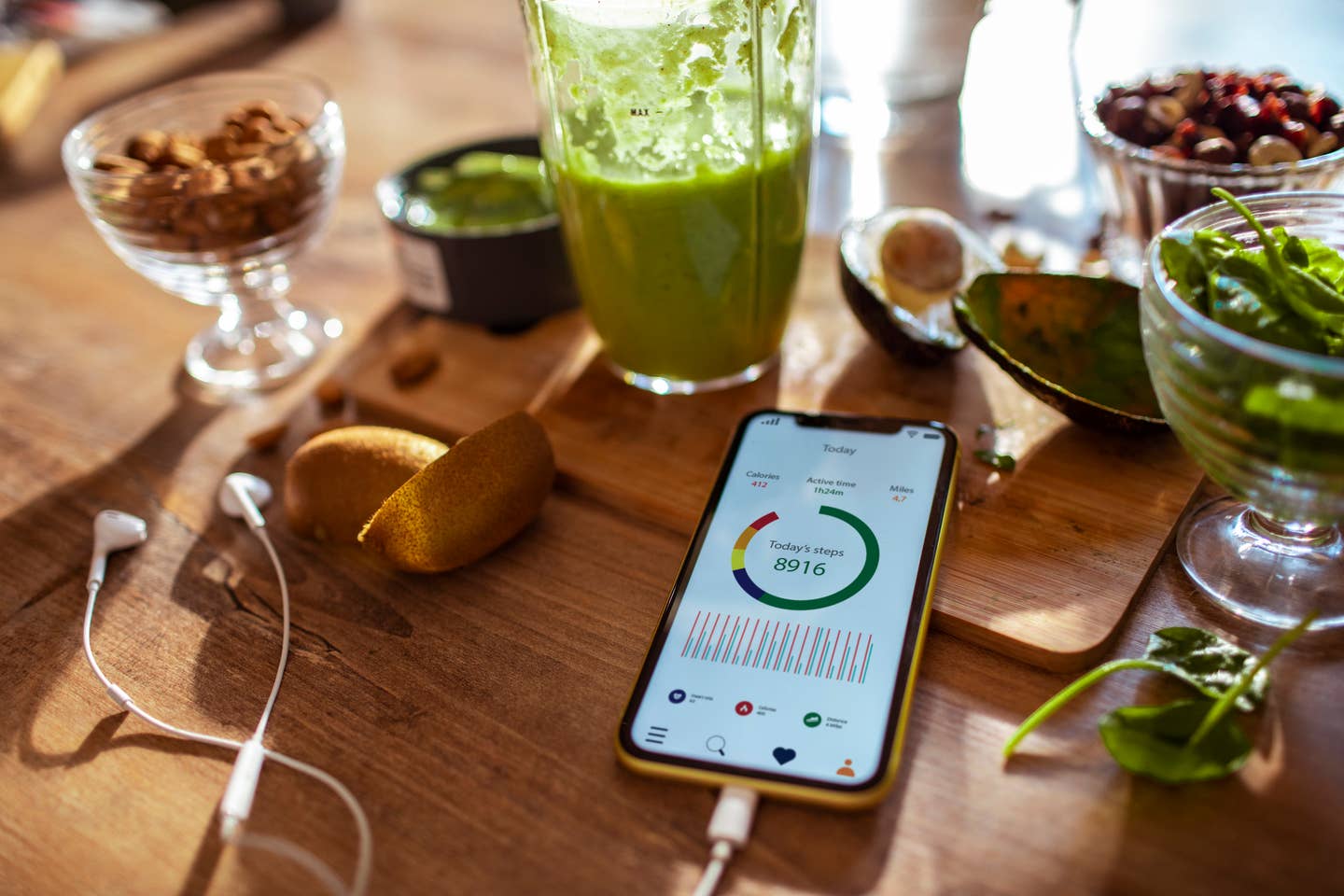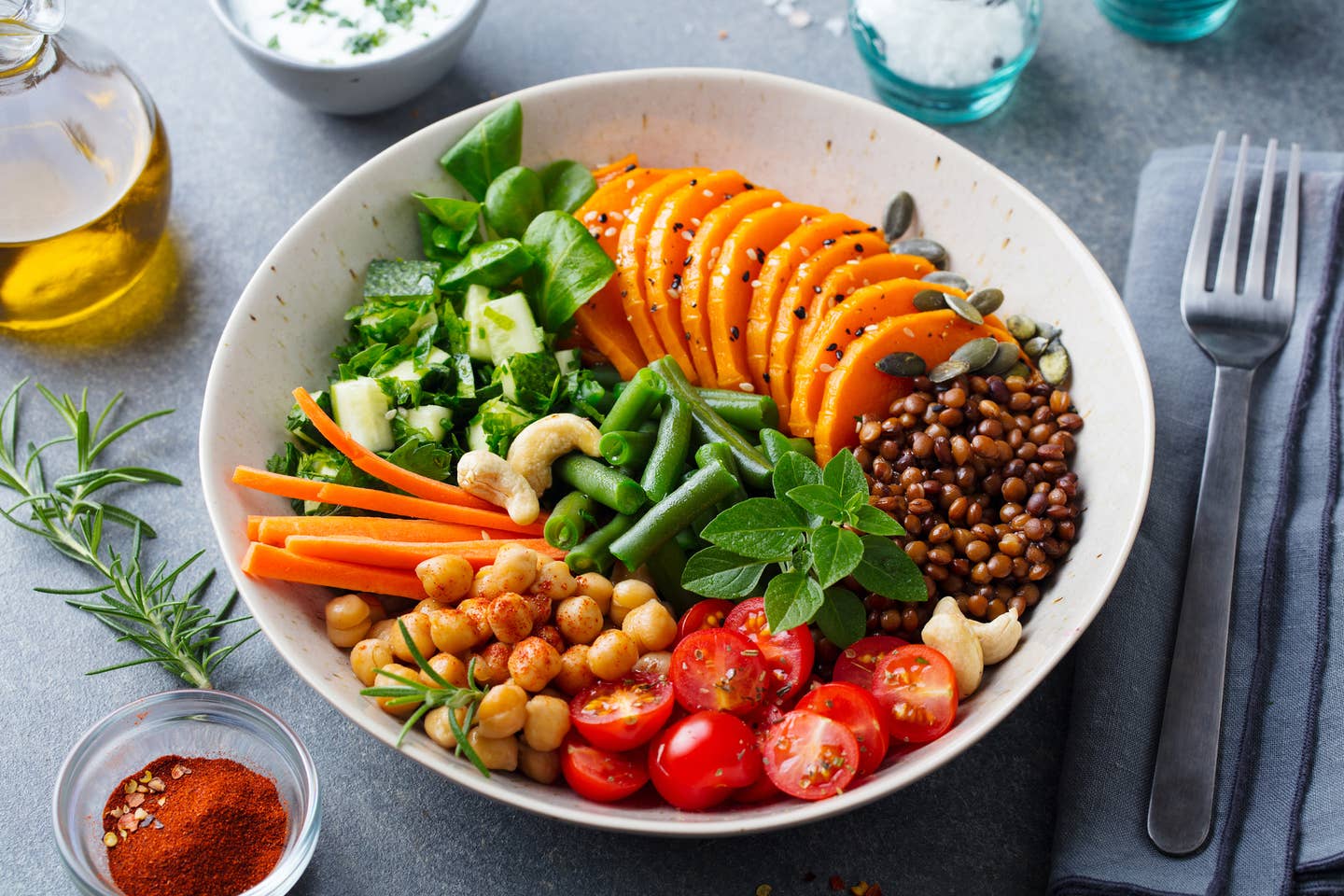
5 Surprisingly Healthy Foods That Help Promote Weight Loss
You might think individuals who manage to lose weight and keep it off eat only salads, especially if they’re plant-based. Let's put that urban myth to bed. While plant-based eaters do eat salad, they also eat a lot more than that, including foods you probably consider off-limits because of their fat and calorie content. The surprise? Studies actually support the efficacy of these foods in keeping you slim. Below, experts talk about five shocking foods that actually can aid in weight loss.
1. Avocados
It may sound counterintuitive, but avocados can help you lose weight. While avocados do add calories and fat, albeit healthy unsaturated fat, to the diet, but eating them could pay off in the end. “A growing body of evidence shows that the healthy dietary fats, and corresponding calories, in avocados do not contribute to weight gain,” says Wendy Reinhardt Kapsak, M.S., R.D.N., president and CEO of the Produce for Better Health Foundation. Even better? “Avocado eaters are less likely to be overweight or obese.”
Take, for instance, a study from the journal Nutrients, which showed that avocado eaters weighed less and had lower BMIs than non-avocado eaters. What’s more, those eating about a fifth of an avocado a day had the lowest chances of becoming overweight or obese.
That makes sense when you consider that avocados are a heart-healthy, nutrient-dense source of fiber, which can make you feel fuller faster and longer. A whopping 79 percent of their weight is made up of fiber and water, Kapsak says. They’re also packed with almost 20 vitamins, minerals, and plant-based compounds to get you healthier from the inside out.
Pro tip: Prevent unused avocados (best in the shell and with the pit) from going brown by sprinkling them with lime or lemon juice and covering it tightly with plastic wrap; store them in the fridge for up to three days.
2. Chocolate
Sweet news: Chocolate can help lose weight. But note: “It’s not a magic bullet for weight loss,” says DJ Blatner, R.D.N., a dietitian in Chicago and author of The Superfood Swap. No one is saying to dive into a vat of chocolate. But a little bit goes a long way.
There are three ways dark chocolate could help in the weight department. First, chocolate can enhance your mood, and when you’re in a better mood, you’re more likely to engage in healthy acts of self-care like exercising and cooking nourishing meals, Blatner says.
Chocolate can also help reduce stress, and when you have higher levels of the stress hormone cortisol in your body, it signals to the body to hold onto fat, so you’re more likely to gain weight or at least not lose weight. “Less stress equals less stress eating,” she says. Finally, if you’re eating a small amount of chocolate – one ounce a day – you have less of a restrictive mindset, which usually leads to diet failure.
Pro tip: Choose dark chocolate with 70 percent or more cocoa to help you lose weight. Not only is it more filling than milk and has more healthy cocoa flavonoids, but it can be paired with fresh berries to boost nutrition.
3. Dried Fruit
Dried fruit may not be in the same health category as fresh fruit, but that doesn’t mean you should discount it. One reason? Folks eating dried fruit were generally healthier than those who didn’t and ate more nutrients on the days they ate dried fruit versus when they didn’t, according to a study from the Journal of the American Academy of Nutrition and Dietetics. Although it’s recommended that you eat 2 to 2.5 cups of fruit per day, dried fruit eaters came closer to this goal than those who didn’t eat dried fruit. Plus, dried fruit eaters were more physically active than those who abstained.
But that’s not all. Even though they ate more calories on days they were eating dried fruit, these individuals tended to have lower body mass index and waist circumference versus those who didn’t. “One reason energy intake might be higher on consumption days yet not translate into higher body weights is that people don’t consume dried fruits every day,” says Valerie Sullivan, Ph.D., R.D.N., a postdoctoral fellow at Johns Hopkins Bloomberg School of Public Health who conducted this research while a student at Penn State in University Park, Penn. Even if you do eat more calories when consuming dried fruit, it’s not a daily occurrence and won’t lead to weight gain as long as you maintain energy balance. And like fresh fruit, dried fruit contains fiber, which may help you feel fuller and support healthy weight maintenance.
Pro tip: Choose unsweetened varieties of dried fruit to help you lose weight.
4. Pistachios
If you’re stopped eating pistachios because you’ve heard nuts make you gain weight, it’s time to rethink that strategy. In one study from Nutrients, eating pistachios regularly was associated with similar weight loss and reductions in body mass and waist circumference as a control group who didn’t eat pistachios. What gives? Pistachios are slightly lower in calories than what labels list, namely because your body doesn’t absorb all of the fat from the nuts you eat, Blatner says. For instance, one ounce of pistachios is about 160 calories versus 170 calories listed on the food label.
This, however, isn’t the main reason. “It’s the fact that eating nuts displace other less nutritious, higher-calorie foods,” Blatner says. Nuts, pistachios included, have protein, healthy fat, and fiber, all of which add up to making you feel full. Plus, that one-ounce serving of pistachios goes a long way, as you actually get 49 kernels to fill up on.
Pro tip: Pistachios are a great food for weight loss. To make it an even better weight-loss snack, buy pistachios in the shell so it takes you longer to eat them.
5. Potatoes
Spuds get a bad rap for boosting weight. Truth is, though, carbohydrates like potatoes are critical to a healthy diet and overall well-being. “Potatoes are high in potassium and fiber, two important nutrients which many Americans don’t consume enough of,” Kapsak says. Potatoes also boost your energy and can help you feel more productive. Both white and sweet potatoes contain these nutrients and count toward your veggie intake.
Because of their high water and fiber content, especially if you eat the skin, potatoes can be particularly filling and provide long-lasting energy, which can lead to weight loss. Take, for instance, a 2014 study from the Journal of the American College of Nutrition in which researchers found that people can eat potatoes and still lose weight. Researchers note that a medium-sized potato contains only 100 calories per serving.
Pro tip: Potatoes are great for weight loss if eaten in a healthy way. If possible, eat your potato baked, with no added fat or plant-based butter or oil since that drives up the calories and negates the health benefits of the fiber.
If you’re looking for more ways to incorporate a healthy, plant-based diet into your day-to-day life, check out our Health and Nutrition articles.
You may think iron is synonymous with meat, and while animal protein certainly has it, that doesn’t mean you can’t get enough iron if you eat a mainly plant-based diet. In fact, you can, if you know the right foods to choose and how to pair them. The daily recommendation from the National Institutes of Health (NIH) for iron intake is 18 milligrams (mg), but not all iron sources are created equal. Here’s what plant-based eaters need to know about iron and which iron-rich foods are best to help reap the benefits.
1. White Mushrooms
1 cup cooked = 3 mg iron (17% daily value (DV))\There are many reasons to eat mushrooms on the regular, but their meaty texture (try a Portobello cap as a meat replacement for a burger!) and ample protein are two of the highlights. Add them to your stir-fry, tacos, or even instead of meat in a faux Bolognese sauce.
2. Lentils
1/2 cup = 3 mg iron (17% DV)You don’t need to eat a huge serving of lentils to get a hearty dose of iron. Just a half-cup provides close to 20% of the iron you need in a day. Just like mushrooms, lentils have a meaty texture that works well in burgers, tacos, or grain bowls.
3. Potatoes
1 medium potato = 2 mg iron (11% DV)The poor potato has gotten such a bad rap. Fear of this carb-rich spud is unwarranted because it’s actually an affordable and delicious source of iron and potassium. So go ahead and have that hash, baked potato, or potato soup and leave the skin on for some added fiber.
4. Cashews
1 ounce = 2 mg iron (11% DV)Most nuts contain iron, but cashews are a standout because they have less fat than some of the other nuts. One ounce of cashews (about 16 to 18 nuts) has 160 calories, 5 grams of protein, and 13 grams of fat. Add a handful of cashews to smoothies, soups, or sauces for some extra creaminess.
5. Tofu
½ cup = 3 mg (15% DV)Not only does tofu have plenty of protein and calcium, but it’s also a good source of iron. It’s very versatile and takes on the flavor of any sauce or marinade, making it a great meat substitute.Keep in mind that you can easily get the iron you need from a plant-based diet.
More From The Beet






